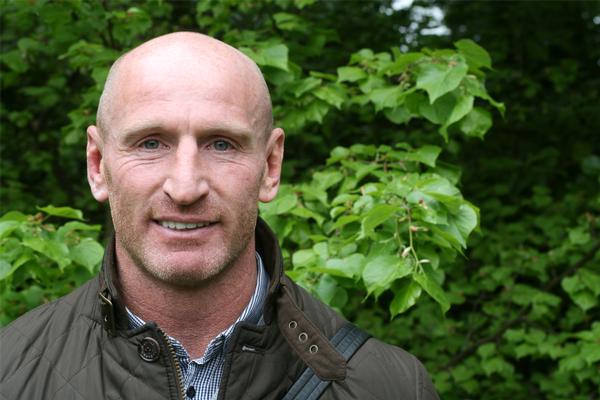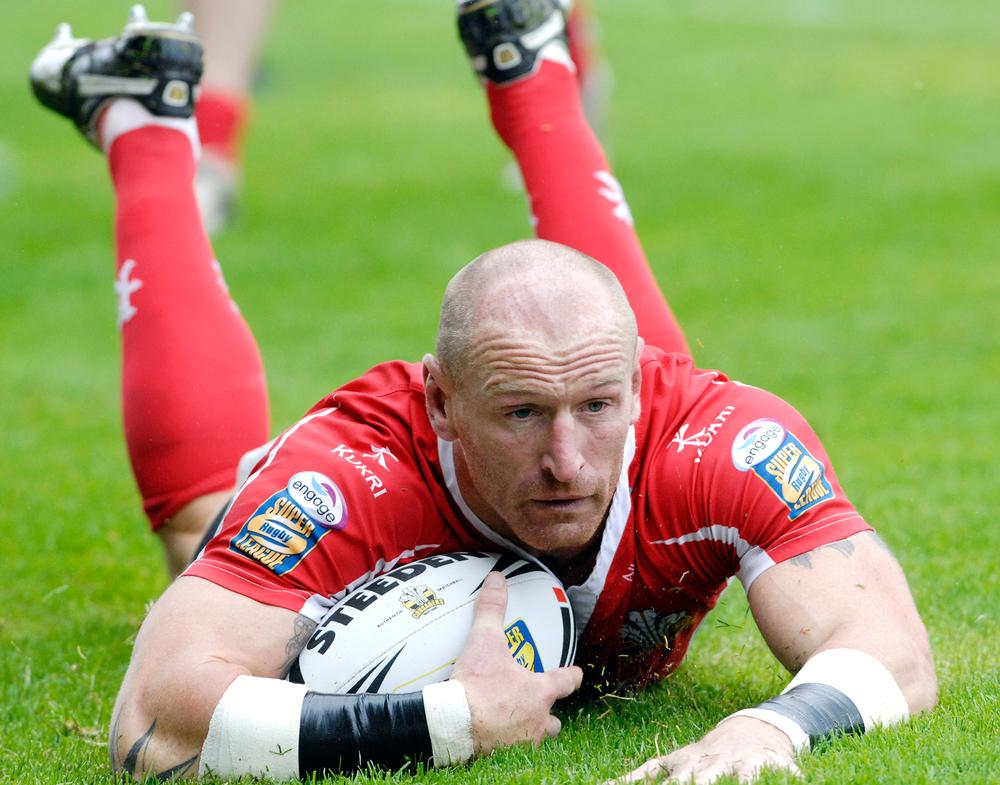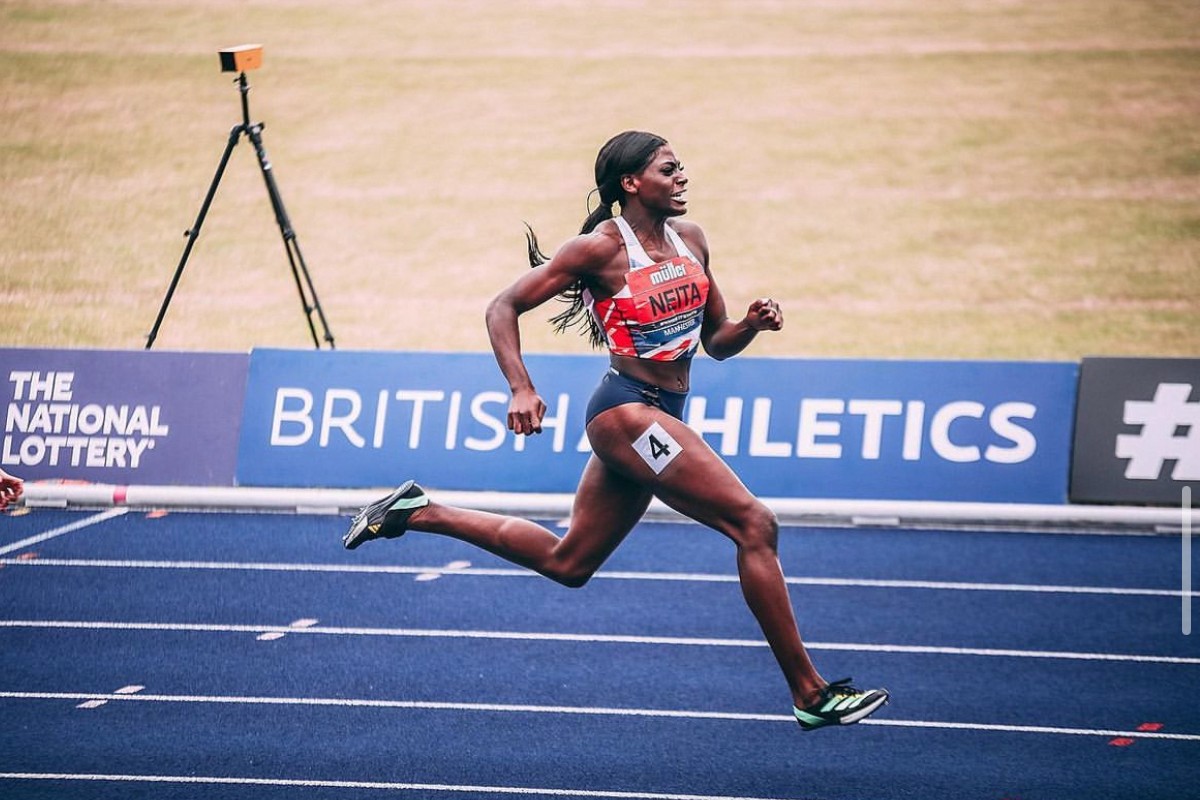People: Wales rugby legend Gareth Thomas on the state of the grassroots game in his home nation
Former Welsh rugby player

You made your international debut in 1995 – the year rugby ‘went professional’. How has the sport changed since those days?
The game has changed an unbelievable amount, and it’s still changing. Whether it’s changing for the better or for the worse I don’t really know.
Rugby can be a beautiful, engaging spectator experience but there is a danger that constant physical contacts become boring and that means the spectator switches off. When people watch the sport they want to see a range of different skills – speed, vision, ball handling, kicking.
So, I know if I critiqued at a game from 1995 and compared it to a recent game, the former would be probably laughable because the professional standards then were nothing like the professional standards are now. Even though rugby turned professional in 1995, it took a long time for attitudes to catch up, maybe six or seven years.
As a sport, rugby union has always been a game for people of all shapes and sizes and that’s what made it attractive. Now though every player is lean, fit and tall. This takes away a lot of the history of the game and could potentially limit the size of the audience to which the game will appeal to.
To be successful and popular, rugby needs to be an inspirational sport for all ages and ability levels. Children need role models like Shane Williams – a 5ft 7in (170cm) winger who broke the record for Welsh caps – to follow. They need to think ‘well I might be small but that never stopped Shane’, rather than thinking the game isn’t for them because they do not have the physical attributes of the modern players.
There has been a lot of talk around the banning of tackling in schools. What is your view on introducing a ban?
If you ban tackling in school you struggle to call the activity rugby. Tackling is a technique that is learnt and at some stage developing athletes will have to learn how to do it. Children are fearless. This is a good time to learn the skill.
If we go as far as to exclude tackling we may as well change the shape of the ball and put goal posts at either end of the pitch because you are then turning it into a completely different game.
Many athletes find it hard to transition to ‘real life’ at the end of their sporting careers. Did you find it hard?
It was very difficult. I went from a life where I was surrounded by friends and team mates, the phone ringing every day, sponsorship deals constantly being offered, to a life where I was excluded from my circle of friends, the phone doesn’t ring and the cause I had dedicated my whole life to had disappeared. I had gone from being at the top of my career ladder to being back at the bottom.
The challenge is that many employers are looking for academic qualifications to reinforce an individual’s ability to perform tasks. As a full-time rugby player, I had no qualifications to show for all my years of effort and achievement.
I believe that professional rugby players carry many traits that would make them successful in the corporate world. Leadership, dedication, the importance of giving 100 per cent commitment to your team mates are all vitally important in the achievement of business goals and difficult for academic qualifications to teach.
Businesses are starting to recognise the value ex-professional sports men and women can bring to their organisations, but it’s still a struggle for individuals to carve out successful careers post sport. Most ex-professional rugby players don’t have the financial backing that footballers enjoy, so there is still often pressure to find a way to generate a decent income.
You now do some ambassadorial work with schools and young players – what’s your take on the health of grassroots ruby?
It varies depending on the school and geographical location. In Wales, unfortunately it feels like grassroots rugby is struggling. The structure of Welsh Rugby is not good, there just isn’t the necessary funding structure in place.
Clubs are having to spend too much time raising funds and trying to make themselves financially viable. But rugby is such a fantastic game. It’s great for creating social opportunities and instilling core values and these attributes will ensure that it continues to survive at some level. I would like to see more focus on grassroot delivery.


Commercial Manager
Receptionist
General Manager
General Manager
Swim Teacher
Customer Service Advisor
Team Leader
Swim Teacher
Swimming Teacher
Swimming Teacher
Company profile

Featured Supplier

Property & Tenders
Company: Jersey War Tunnels
Company: Savills
Company: Cotswold Lakes Trust
Company: Knight Frank
Company: Belvoir Castle















